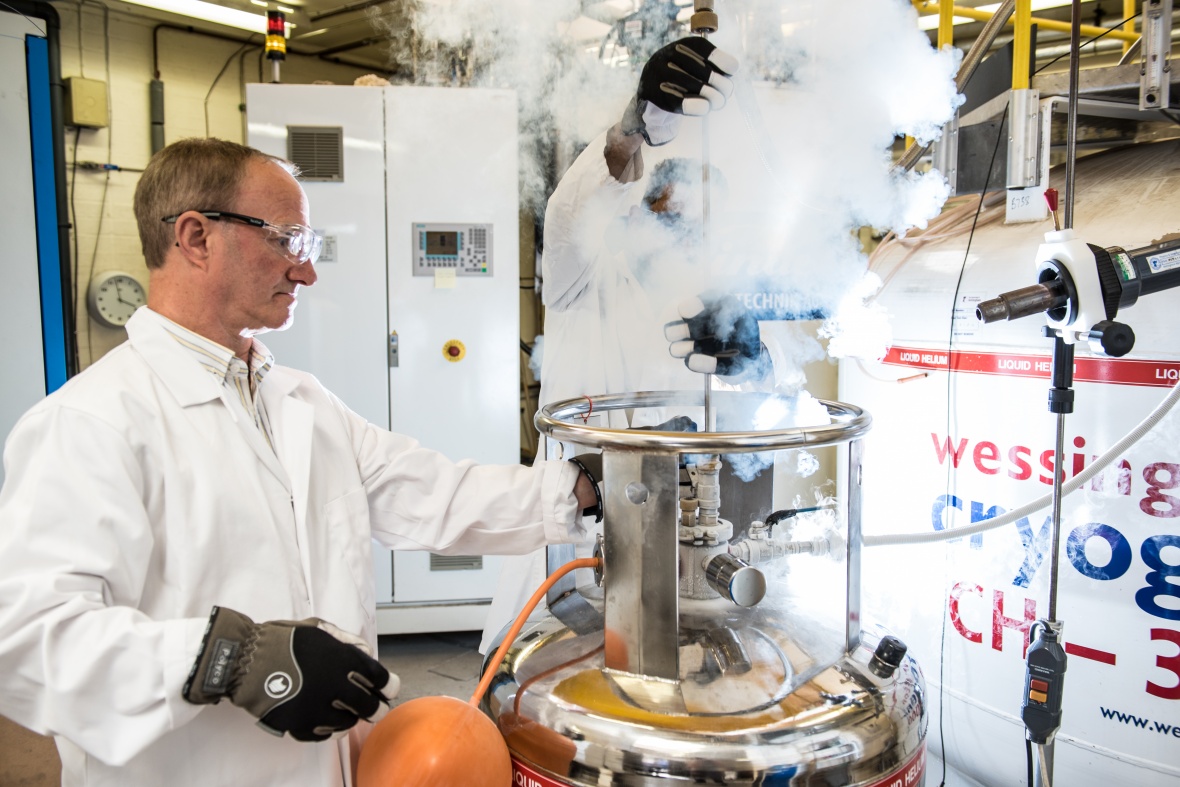
July 16, 2018, by Rob Ounsworth
Technicians: vital frontline support for student wellbeing
The University of Nottingham is a proud founding signatory of the Technician Commitment, which is bringing much needed visibility and recognition to the vital role that over 30,000 technicians working across UK universities and research institutes play in enabling research and innovation, and in inspiring and nurturing students.
The majority of technical staff are in student-facing roles and, whilst their technical expertise and practical support is an essential part of the teaching and learning experience, the ‘frontline’ nature of their roles means that technical staff are also providing important but perhaps unrecognised pastoral support for students. Technical colleagues are supporting students’ personal, social and wellbeing needs, acting as positive role models, contributing towards developing resiliency and signposting to social and academic support systems.
One in four people in the UK suffer a serious mental health problem each year, and 95% of people suffer clinical anxiety at some point in their life (NHS figures). Several surveys suggest that mental health issues are substantially more prevalent in postgraduate research (PGR) students, with some sources suggesting 40-50% of PGR students will suffer poor mental health each year, approximately twice the rate seen in undergraduates and the general UK population (Berkeley mental health survey 2014, Exeter mental health questionnaire 2015, NUS survey 2017, YouGov survey 2016).
Vitae’s recent publication Exploring wellbeing and mental health and associated support services for postgraduate researchers (2018) cites academic supervisory relationships as a common reason for wellbeing issues among postgraduate researchers (PGRs). Some PGRs are reluctant to talk to academic supervisors about mental health and wellbeing issues, because they worry this might influence perceptions of their ability to achieve their doctorate.

Kelly Vere, Technical Skills Development Manager at the University of Nottingham: Together, we aim to shine a light on the support that technicians bring to our institutions.
Technicians may be the first member of staff a student reaches out to
Technicians can often be the first to get to know students more informally in their respective research and learning environments. Consequently, they are often the first to notice a student who may be struggling and might be the first staff member a student reaches out to. For example, in a research setting, it may be the technician who first becomes aware of a PGR student who hasn’t been in the laboratory for a few days, who sees an experiment go wrong again (and again, and again); or who realises that someone is repeatedly working alone over weekends and out of hours.
Alongside their academic colleagues, the pastoral role that technicians and other professional services colleagues play is crucial to providing PGRs with routes to access the support they need. While it is essential that we value and invest in the skills and technical expertise of all our technicians, we need to recognise the additional, perhaps ‘unseen’, role they play in supporting the wellbeing of students.
With the increasing recognition that we have to support all of our staff and students to improve their wellbeing, we know that many universities are now providing mental health awareness training and many departments are implementing systems where staff are Mental Health First Aiders. These staff are taught to listen and to provide an initial response, possibly in a crisis situation, and are equipped with the tools required to signpost staff and students to additional support. This support is essential in reducing the pressure on centralised counselling services, and can prove especially useful if they are struggling to cope with demand.
Look out for a survey on the pastoral support offered by technicians
The Institute of Integrative Biology at the University of Liverpool is one such example. Having recently secured £150K of funding from the OfS (formerly HEFCE) Catalyst funding, they are developing and piloting a multi-layered induction, training and development framework to support PGR students’ mental health and wellbeing – focusing on the transition into the early stages of doctoral study. Technicians are represented on the project Steering Group in recognition that they play an important role in supporting PGR students in the laboratory. The project will look at the role technicians play and how we can better equip them to support crisis management; increasing resilience and reducing stressors.
To further support technicians in this role on a broader scale, the Science Council is working with the Institute of Physics, the Royal Society of Biology, the University of Nottingham and the Institute of Integrative Biology at the University of Liverpool to coordinate support and training for technicians in being able to identify staff and students potentially at risk, support them, and respond to someone having a mental health issue or even a crisis.
Our first step will be to survey our technicians to find out how many have provided such support, and how equipped they felt to do so. Please look out for news of this survey and consider strengthening our commitment to supporting our students.
Together, we aim to shine a light on, and lend help to, the presence and support that technicians bring to our institutions. In addition to their vital technical skills they provide support that is critical to the success of universities and research institutes, and importantly to the wellbeing of the communities within them.
Find out more about the Technician Commitment and sign up to receive updates on its work
The University of Nottingham Counselling Service provides a year-round service for all students and staff and offers a range of services including groups and workshops, self-help resources and individual counselling.
Jenni Dyer, Institute of Physics
Kate Jones, University of Liverpool
Laura Marshall, Royal Society of Biology
Kelly Vere, Science Council and Technical Skills Development Manager, the University of Nottingham
No comments yet, fill out a comment to be the first

Leave a Reply